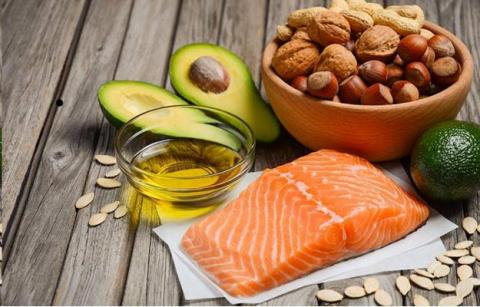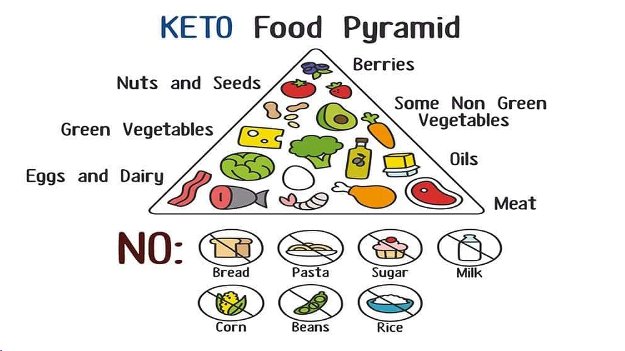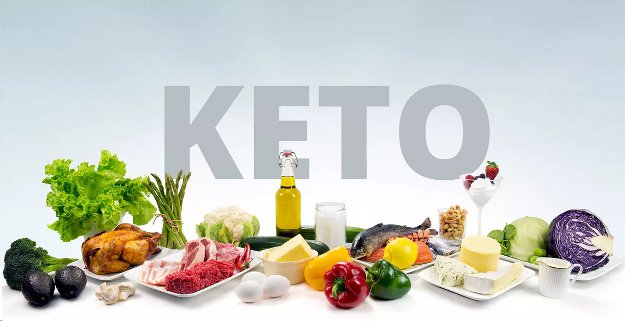Passing Fad or Fact? Analyzing Benefits of the Ketogenic Diet

To go Keto or to not go Keto? That is the question. While high-fat low-carb diets have been around for a long time, the Ketogenic diet has climbed higher in diet trends in recent years.
The diet is intensely restrictive—following a regimen that calls for a person’s daily food intake to be made up of 75 percent fat and oils, 20 percent protein, and 5 percent carbs.
The benefits include rapid and continuous weight loss, high energy, no cravings, and less feelings of hunger—making the Ketogenic diet appealing for those who are looking to lose weight fast and keep it off.
There is also a lot of hype about how the Ketogenic diet benefits people who are diabetic or epileptic. There are allegedly even cases where brain tumors are reduced or completely diminished after following the Keto diet for some time.
So why is all this information only coming to surface recently? There are a lot of contradictory dietary recommendations that many Americans have followed for years.
For example, the 1992 USDA Food Guide Pyramid recommends from six to 11 servings of grains—specifically bread, rice, and pasta. All of these are refined and processed carbohydrates. It also recommends three to four servings of fruits and vegetables, which isn’t bad, but that’s still a larger serving of carbohydrates in comparison to the Ketogenic diet.
The USDA Food Pyramid may have shifted to a more personalized approach in 2005-2011 and focuses on the concept of including more whole foods in a daily diet. Yet, both food pyramids suggest limiting the amount of fats a person eats.
Meanwhile, the Ketogenic Food Pyramid relays quite opposite information. It suggests eating mostly healthy fats (avocados, natural oils, butter), meats, non-starchy and green vegetables, dairy and nuts, and berries.

Wait…what? No wonder there is uncertainty about what is healthy and what isn’t. A lot of trendy diets over the years have made fat and calories seem like the enemy.
As of recently, experts rave about the benefits of a high-fat diet and conclude that carbohydrates are actually what we should decrease. So what should we believe?
Contradictory information that recommends almost opposite diets could confuse people on what would be the best diet for their health. Since the food pyramid hadn’t changed until 2005, Americans believed a carbohydrate-rich diet was the best dietary choice.
Now that these same people are being exposed to a new diet that is opposite to previous dietary suggestions, there could be some hesitation to try a high-fat diet such as the Ketogenic diet, or could create other obstacles for committing to dietary changes.
People used to following dietary habits that consist of consuming mostly carbs could experience difficulty in remaining disciplined enough to successfully commit to a new diet. For example, trying the Keto diet but not remaining consistent and consuming higher amounts of refined carbohydrates and sugars would keep someone from staying in ketosis.
For example, the Keto diet has provided successful results for people with neurological disorders. A case study conducted in the December 4, 2009 European Journal of Epilepsy measured ketosis in 33 epileptic patients. The results showed that 50 percent seizure reduction occurred for 24 percent of the patients.
As a result, someone with a neurological condition may be more likely to have lasting success with the Ketogenic diet because of the positive effects it could have on their brain health—regardless if they desire to or need to lose weight.
Another example is those who are diabetic and try the diet. The Keto diet already requires people to cut out refined sugars and excess carbs—two factors that diabetics are recommended to avoid due the risk of increasing already high blood sugar. Therefore, someone with diabetes may try Keto with the goal of managing their blood sugar levels.

Keeping personal goals other than weight loss in mind when making such a drastic change in diet or lifestyle is important. The desire to only follow the Ketogenic diet for rapid weight loss may not be the best reason to try it if there isn’t much weight to lose.
Some people’s bodies simply don’t thrive on the Keto diet. A Huffington Post article on the pros and cons of Keto claims that some people who followed the diet for too long faced constipation, dehydration, fatigue, and nausea.
There is also a lack of research of how indefinite long-term Ketogenic dieting could impact overall health. Based on current research, the body can either respond positively or negatively to continuous Ketogenic dieting depending on the pre-existing health conditions or dietary habits of the consumer.
In the same Huffington post article, cardiologist Dr. Nicole Harkin mentions that the Ketogenic diet could possibly up the risk of increasing LDL cholesterol levels from the high intake of saturated fats. Increased LDL cholesterol could result in developing cardiovascular disease. Anyone who already has high cholesterol levels would most likely be advised by a doctor to avoid foods with large amounts of saturated fats or following a high-fat diet such as the Keto diet.
However, a study in December 2, 2016 by the University of Bergen on saturated fats suggests that saturated fat in general may not be unhealthy depending on the source quality it’s coming from. For example, there are healthy saturated fats that come from avocados, olive oil, nuts, and naturally occurring fat from organic red meats.
As quoted, Professor Gunnar Mellgren states, "The alleged health risks of eating good-quality fats have been greatly exaggerated. It may be more important for public health to encourage reductions in processed flour-based products, highly processed fats and foods with added sugar."
Dr. Rhonda Patrick, Ph.D. in Biomedical Science stresses the importance of lifestyle factors combined with diet. If a diet is mostly composed of refined sugars, refined carbohydrates, and fats from processed food, then that is when the risks of cardiovascular disease increase.
Patrick spoke on the Joe Rogan Experience Podcast on Dec 19, 2017about red meat and concluded, “If someone had one other unhealthy lifestyle factor being either obesity, smoking, excessive alcohol consumption or being sedentary, then they have a higher all-cause mortality and cancer mortality if they ate meat….If they had zero, none of those other unhealthy lifestyle factors then the same all cause/cancer mortality that the nonmeat eaters had.”
With keeping the combined lifestyle factors that impact overall health in mind, following the Keto diet could also cause better health-conscious habits, such as increasing the intake of whole and organic foods and cutting out processed, high-sugar foods.
Another beneficial and healthy practice that may come from following a high-fat, low-carb diet is checking macro levels that keep track of how much fat, protein, carbs, and other nutrients are in everything someone eats. Tracking macro levels could also help encourage someone to also watch their cholesterol and blood sugar levels to make sure they are at a healthy amount.

These kinds of habits can result in a better relationship with food due to eating for fuel rather than for convenience. Tracking macro, cholesterol, and blood sugar levels could also keep someone’s diet—no matter what kind of diet it is—health-focused.
Any diet that is whole- or organic-food-focused is the best way to improve health overall. Finding any motivation in addition to weight loss can create longer-lasting health benefits because it’s easy to fall back into unhealthy eating patterns once the weight is lost.
The bottom line is people should try the Ketogenic diet – preferably in consultation with a doctor -- only if they believe it will help them live a healthier lifestyle, not because it’s trendy and will result in a drastic amount of weight loss instantly.
Author Bio:
Caitlin Cohen is a contributing writer at Highbrow Magazine.
For Highbrow Magazine






























































































































































































































































































































